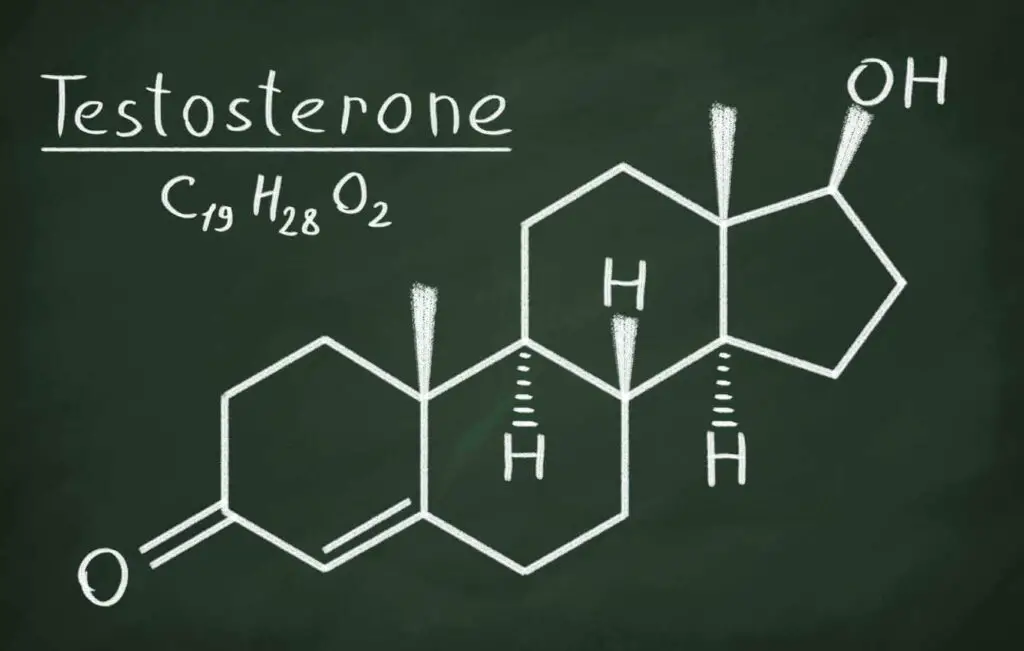Testosterone is a sex hormone that is found in abundance within males but only small traces of it are present inside a female body. This is also a reason why testosterone is majorly known to be a male hormone instead of a common sex hormone.
Testosterone in males vs. in females

In females
Low levels of testosterone in females often lead to issues like:
- Low libido
- Weight gain
- Mood swings
Or if they stay low for long period it can lead to
- Poor memory
- Low bone density
- Heart disease
In males
In contrast to females, low levels of testosterone in men (male hypogonadism) can cause severe effects on the male body:
- Erectile dysfunction
- Reduced bone mass
- Hair loss
- Low sperm count
- Enlargement of breast tissue
Testosterone
Before in-depth information on the declining levels of testosterone, here’s brief information on what testosterone is.
Testosterone is a sex hormone that the body starts producing in abundance when a male child hits puberty. This hormone is important for many biological functions and people of all sexes have some amount of testosterone in them.
Effects of high testosterone levels in males
- It induces proper development of sex organs or reproductive organs especially in males
- It helps to develop good muscle mass
- It helps to gain bone mass
Effects of high testosterone levels in females
- Swelling of clitoris
- Reduction in breast size
- Excess body/ facial hairs
- Increased muscle mass
- Polycystic ovarian syndrome (PCOS)
- Increased risk of uterine fibrosis
People who are more likely to have male hypogonadism (low testosterone levels) are:
- Older men
- Men with obstructive sleep apnea
- Men with chronic medical conditions
- Poorly managed type 2 diabetes
- Men with HIV/AIDS
Factors that affect the testosterone levels

Genes
Everything about you, your sex, immune system, and overall health, everything depends on your genetic makeup. That means that problems in genes can also affect your hormone production which is also true in the case of testosterone levels.
Genetic disorders like Klinefelter’s syndrome can affect the production of testosterone and affect testicular growth in men.
Health conditions
Health conditions like diabetes, physical injuries, cancer, etc can affect the processes responsible for testosterone production.
Age
Testosterone levels fluctuate as you grow old because it is seen that testosterone levels are at peak during puberty and early adult age. But their levels gradually decrease with age. The reduction is not extreme because healthy older men usually do not experience severe effects.
Steroids
Abusing steroids carries a great threat as it doesn’t just affect your testosterone levels it also comes with a lot of other health issues. For example serious conditions like-
- Cardiovascular diseases
- Brain damage
- Liver problems
- Acne
- Infertility
Weight
Research shows that obesity is linked with a decline in testosterone levels and weight loss is required to reverse the condition. You can do that by maintaining a healthy diet and doing physical activities.
Symptoms that you have low testosterone levels (for men)

- Loss of armpit/ pubic hair
- Shrinking testicles
- Hot flashes
- Low sperm count
- Infertility
- Reduced sex drive
- Erectile dysfunction
- Depression
- Decrease in endurance
- Increase in body fat
- Difficulty in focus and memory
Detection of testosterone levels
If you have signs of low testosterone levels then you can reach out to your healthcare provider to get a physical exam done. You might get asked about your medical history and your lifestyle like whether you smoke or take alcohol etc.
The most commonly used method to determine testosterone levels is a blood test. Here’s a list of blood tests that you might get asked to take:
- Total testosterone level blood test
- Luteinizing hormone (LH) blood test
- Prolactin blood test
Treatments for male hypogonadism
Hormone replacement therapy is one of the most widely used methods to treat and reverse low levels of testosterone. Some of the products in the treatment include:
- Testosterone skin gels
- Testosterone patches
- Testosterone pellets
- Oral testosterone
- Intramuscular testosterone injections
- Buccal testosterone tablets
- Testosterone nasal gels
Cases in which testosterone hormone replacement therapy might not work
- If there’s a history of prostate cancer
- In the case of breast cancer
- In case of untreated obstructive sleep apnea
When to see a doctor?
In case you have any of the above-mentioned symptoms a visit to the doctor is a must so that you start the treatment early on before it’s too late. Treatment of low testosterone levels is available in the form of hormone therapy and healthy lifestyle changes. For people who have symptoms especially if they are children and old people then it is a must to consult a doctor so that it doesn’t affect your quality of life.


